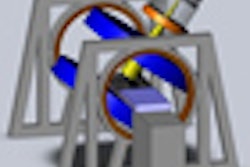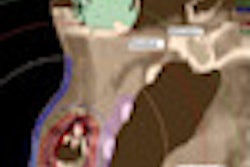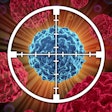Men undergoing proton beam therapy reported a higher quality of life immediately following treatment compared to men who received other forms of radiotherapy, according to research presented on Sunday at the American Society for Radiation Oncology (ASTRO) meeting in Boston.
In a nonrandomized study of 370 patients treated at Massachusetts General Hospital (MGH) and other hospitals in Massachusetts affiliated with Harvard University, the 94 men who received proton therapy at MGH reported few problems following treatment.
In contrast, 153 patients who received intensity-modulated radiation therapy (IMRT) and 123 men who received 3D conformal treatment reported modest yet significant problems with bowel function two to three months after therapy. IMRT patients also reported having urinary problems at the time of their first follow-up.
Lead author Dr. Phillip Gray, a resident in Harvard's radiation oncology program, reported that the urinary and bowel problems had been resolved for all patient treatment groups two years after completion of treatment. However, patients in all three groups reported steadily worsening sexual function over the two-year period.
"Our study provides a unique addition to existing research in this field and suggests that patients undergoing proton beam therapy for prostate cancer may experience fewer immediate side effects," Gray said. "Given the inherent limitations of any retrospective study, a prospective, randomized, controlled trial to investigate these differences will provide the most rigorous and valid comparison of these advanced technologies."
MGH and the University of Pennsylvania have recently initiated a randomized comparison of proton beam therapy and IMRT for patients with localized prostate cancer. The study's principal investigators are Dr. Jason Efstathiou, PhD, the senior author of this study, and Dr. Justin Bekelman, associate professor of radiation oncology at the University of Pennsylvania. The trial is expected to open at several other proton centers next year.



















